No Bullsh*t Hypnosis FAQs
All the questions we've been asked about hypnosis (and probably more) with receipts to prove it...
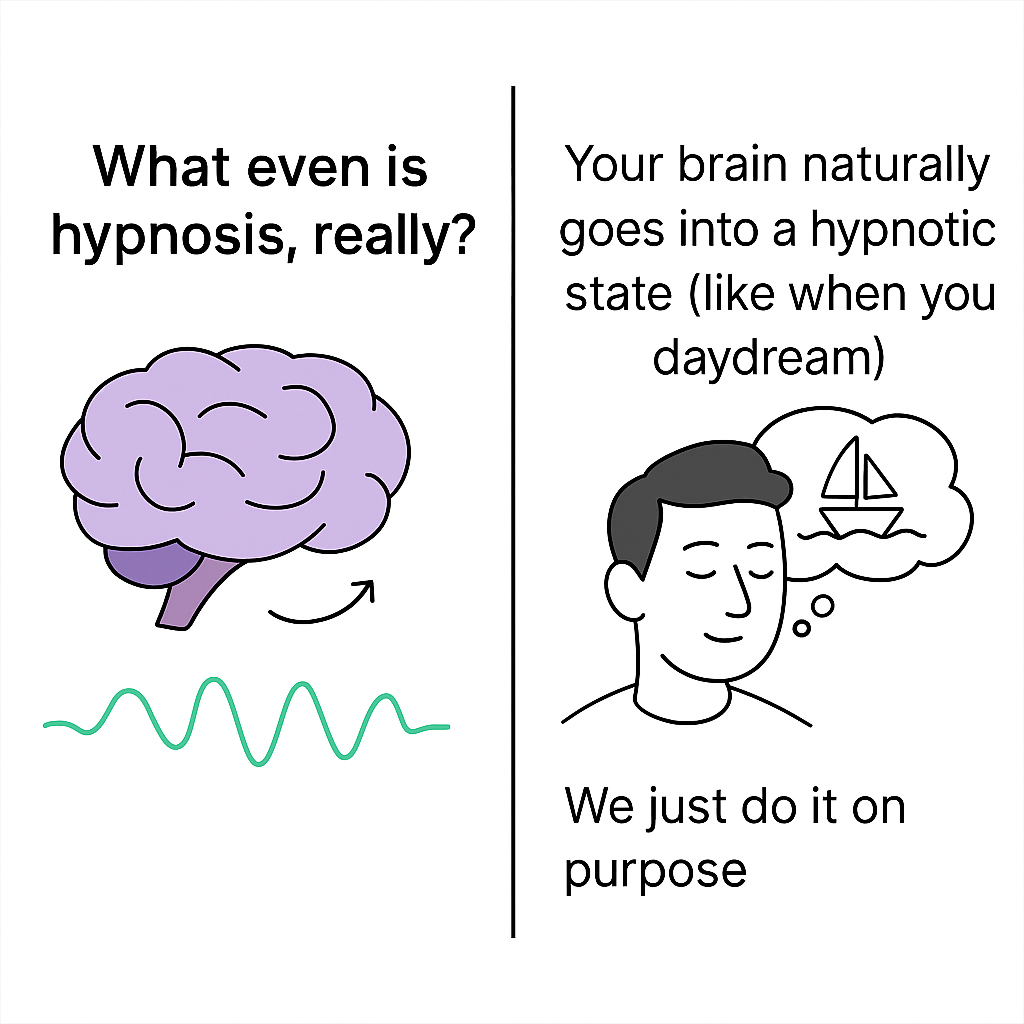
1. What even is hypnosis, really?
Hypnosis is a state of focused attention where your brain becomes more open to suggestions. Not creepy mind control.
Just the science of shifting brain states. Your brain naturally goes into a hypnotic state several times a day (think: highway driving or daydreaming). We just use it on purpose to help you feel better.
Science says: Hypnosis involves increased theta brainwave activity and changes in how the brain processes internal focus (Jensen et al., 2015, Stanford).
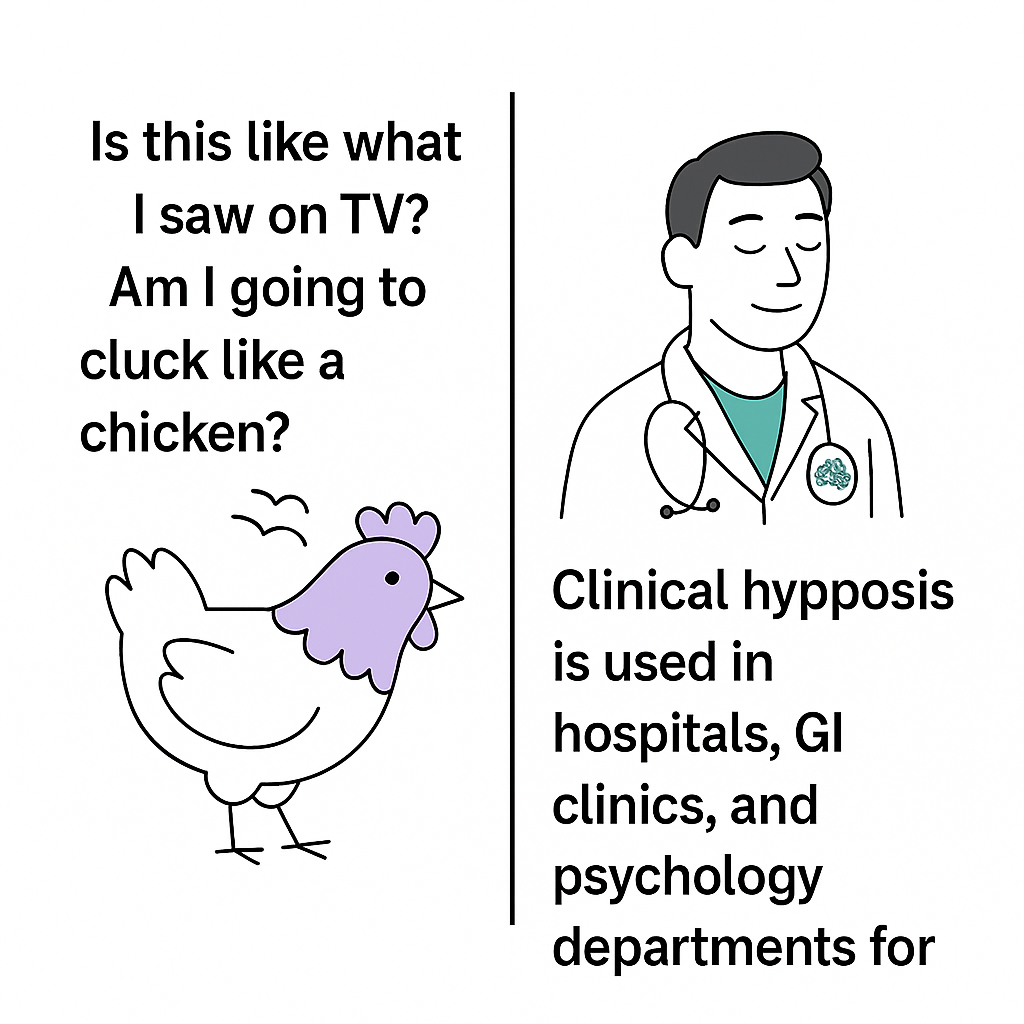
2. Is this like what I saw on TV? Am I going to cluck like a chicken?
Nope. That’s stage hypnosis. Fun at parties, not useful in therapy. We don’t make you cluck, bark, or forget your name. Clinical hypnosis is used in hospitals, GI clinics, and psychology departments for real health problems. Think less circus, more Stanford.
Science says: Clinical hypnosis has been shown effective for IBS, anxiety, and pain (Whorwell et al., 1984; Palsson et al., 2015).
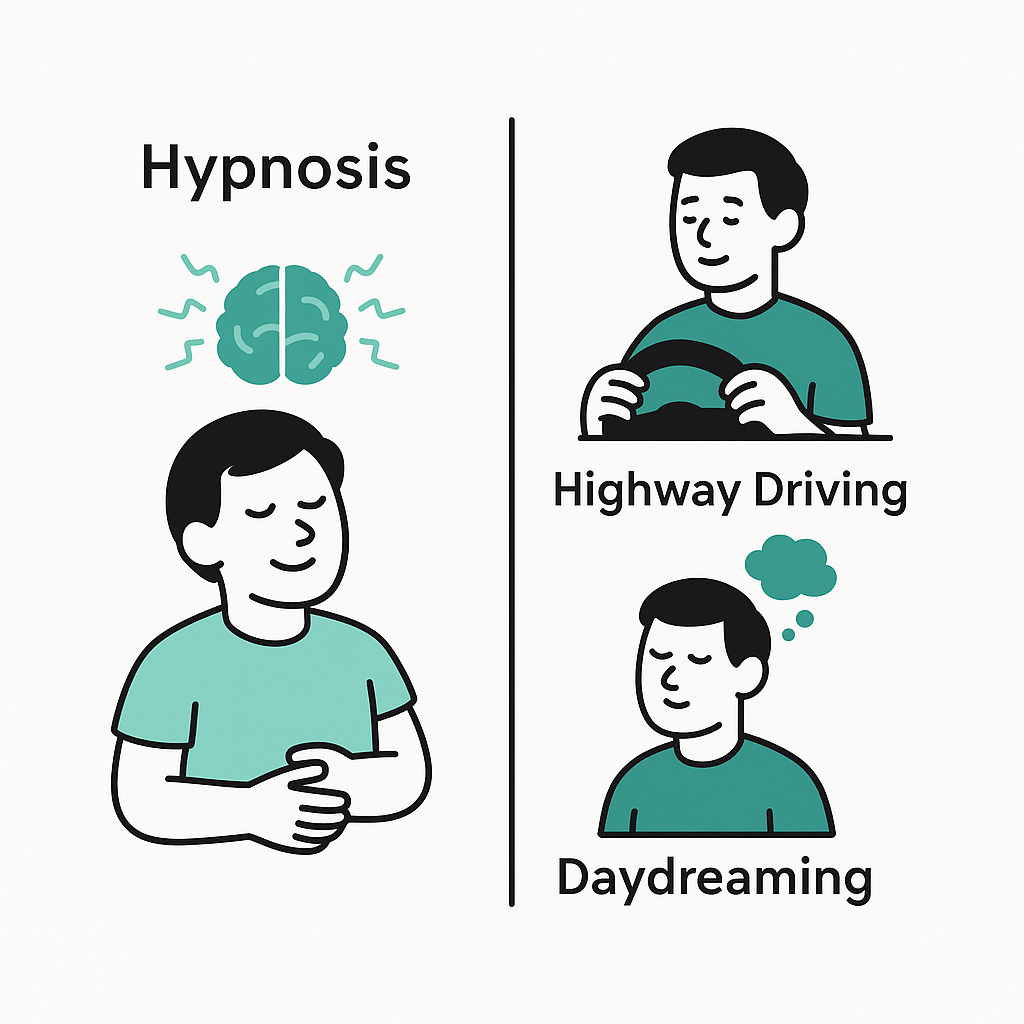
3. Will I lose control or be unconscious during it?
You’ll be relaxed, not unconscious. You're in control the whole time. You can open your eyes, speak, even walk out if you wanted to (but people usually don't). Think of it like guided focus where your body chills and your mind gets a reboot.
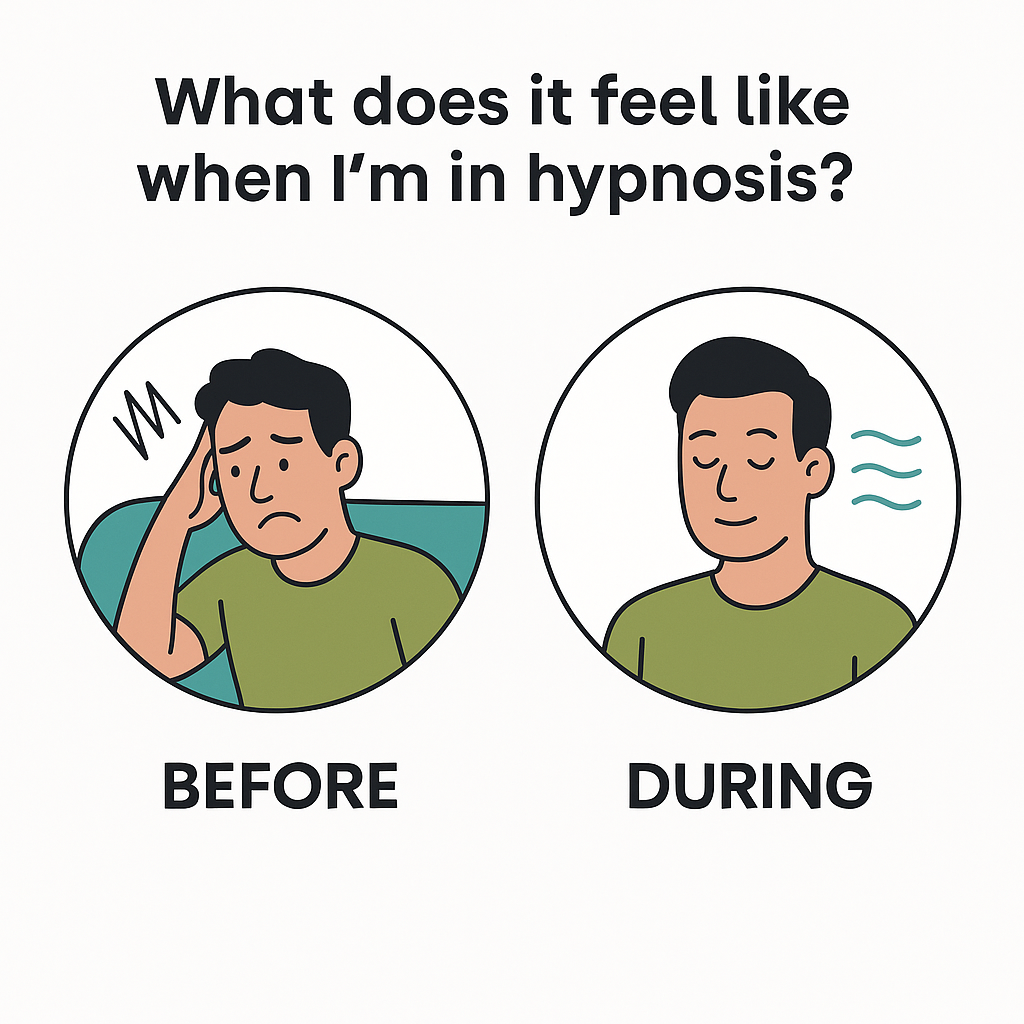
4. What does it feel like when I’m in hypnosis?
It feels a bit like zoning out on the couch, or when you're so into a book you don’t hear someone calling you. You're calm, safe, and tuned in—but with the annoying background noise turned down. Some people say it's like floating. Others say it's just like resting with your eyes closed
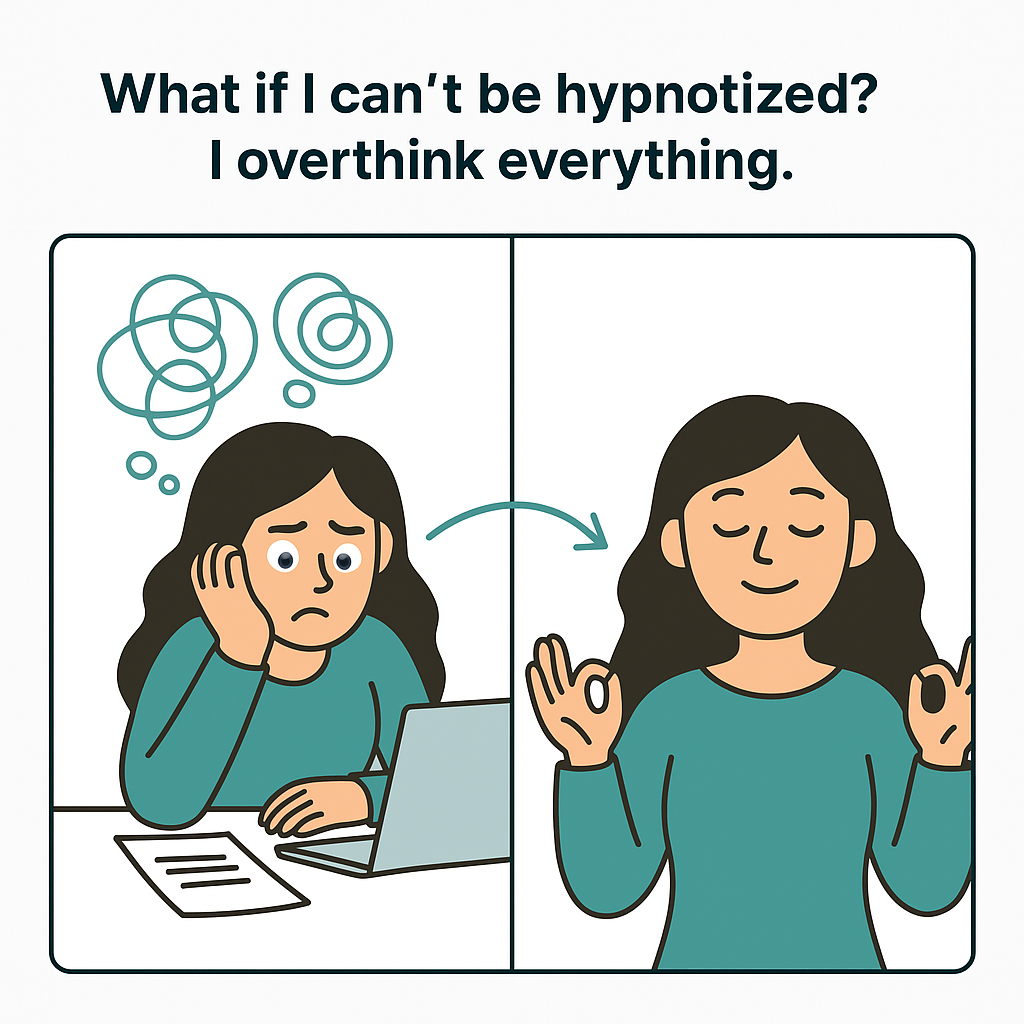
5. What if I can’t be hypnotized? I overthink everything.
Great news: Overthinkers are actually great at hypnosis. Why? Because you’re already good at mental rehearsal—we just help you steer it. Studies show about 90% of people can enter a hypnotic state when guided well (Hilgard, 1965).
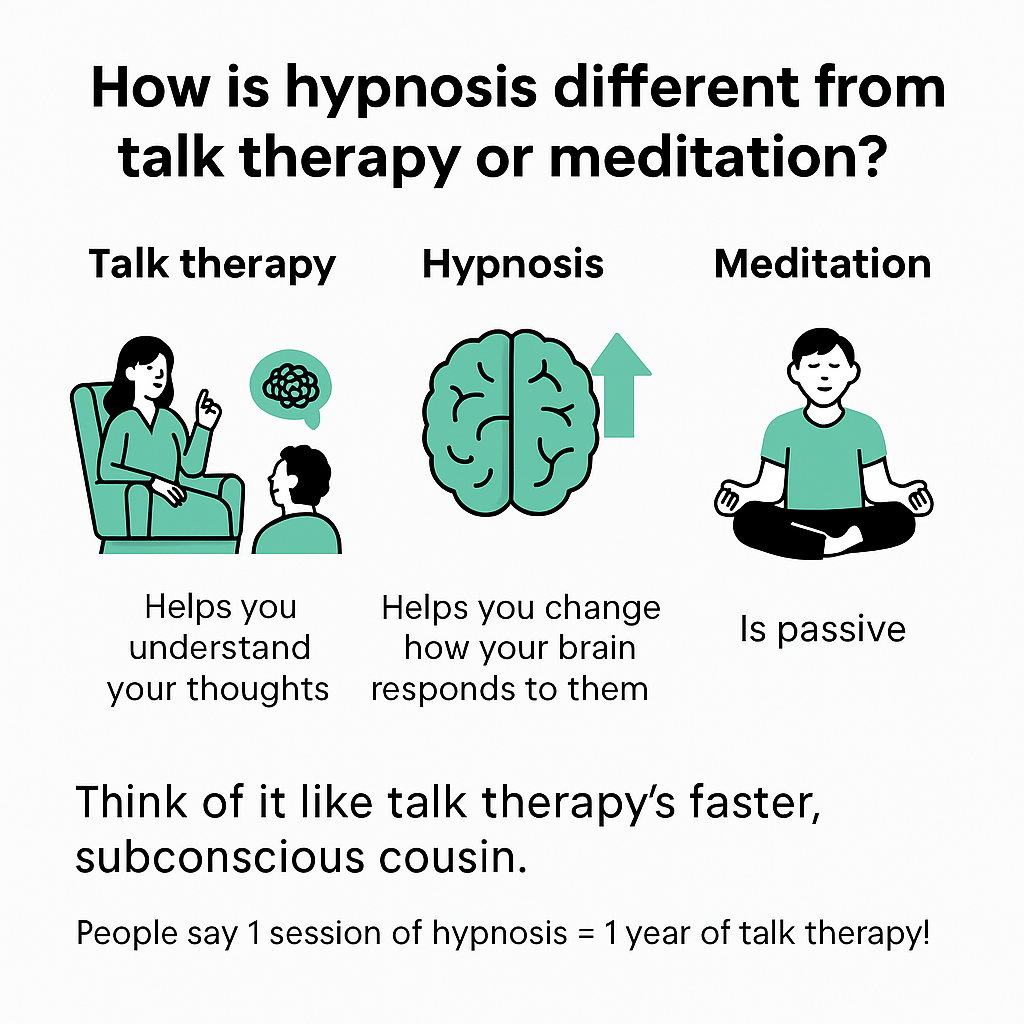
6. How is hypnosis different from talk therapy or meditation?
Talk therapy helps you understand your thoughts. Hypnosis helps you change how your brain responds to them. Meditation is passive. Hypnosis is targeted. Think of it like talk therapy's faster, subconscious cousin. People say 1 session of hypnosis = 1 year of talk therapy!
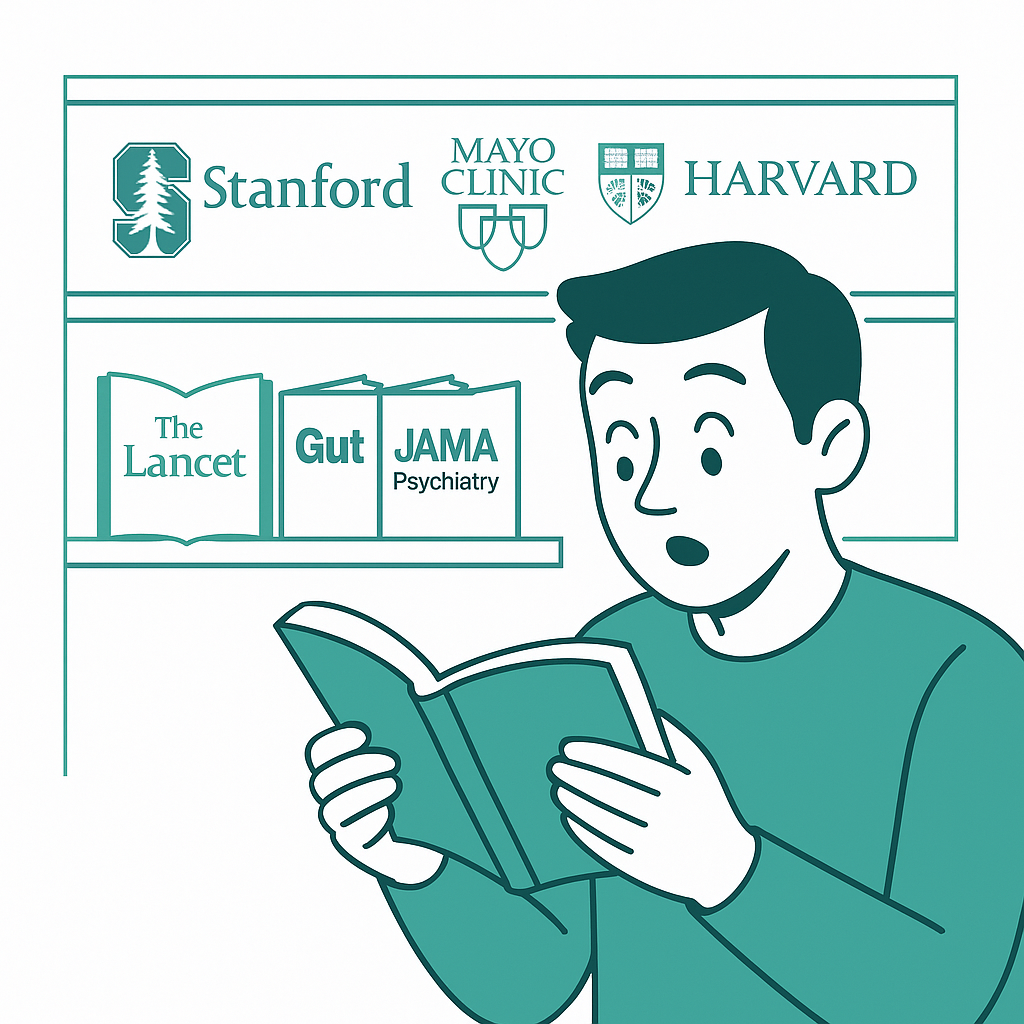
7. Is this backed by science or just woo-woo?
Backed. By. Science. Hypnosis is used at Stanford, Harvard, Mayo Clinic, and Monash University. It has decades of peer-reviewed research for conditions like IBS, anxiety, chronic pain, and sleep disorders. This is the opposite of woo.
Citations: Stanford Center for Integrative Medicine; Palsson & Whitehead, 2002; Elkins et al., 2007 (Sleep);
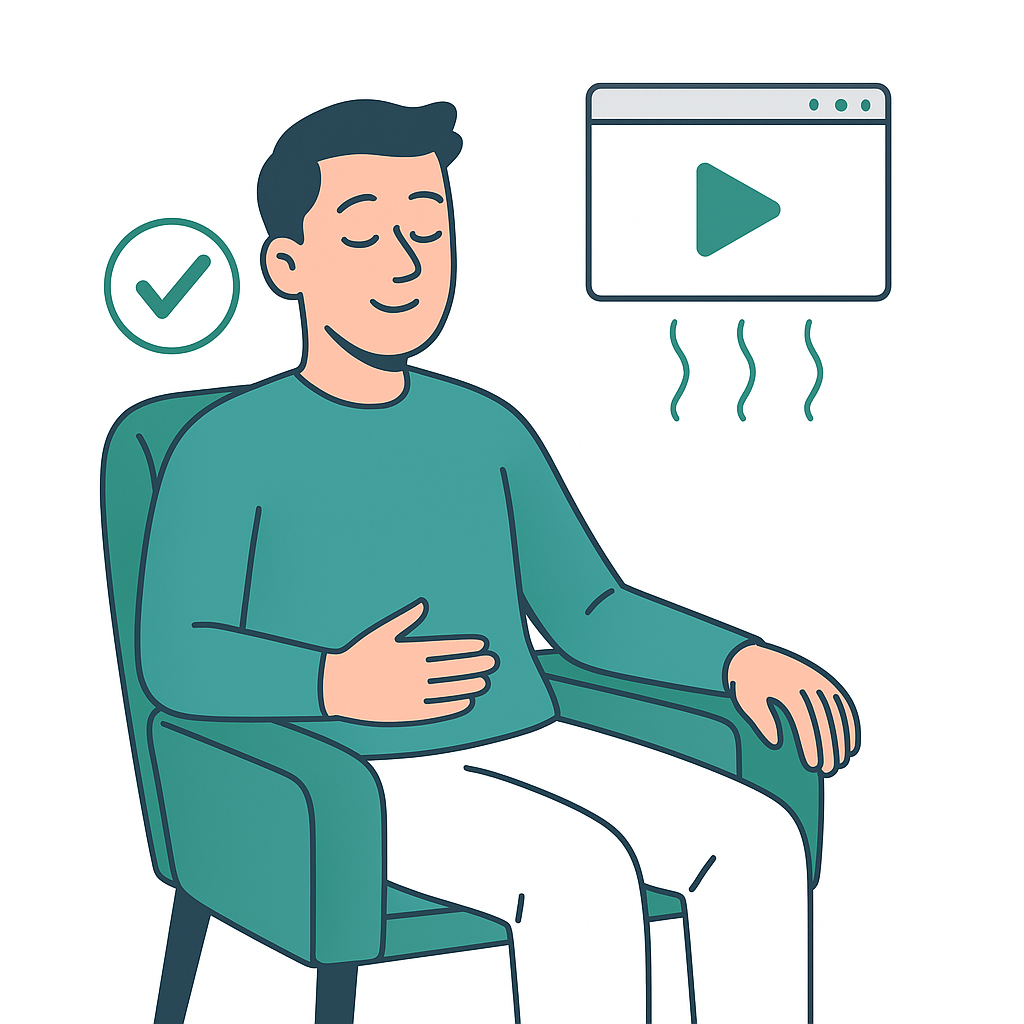
8. Can hypnosis actually help with IBS, anxiety, or sleep issues?
Yes. Hypnosis works by calming the fight-or-flight response and retraining how your body processes discomfort, panic, or restlessness.
It's shown to help 70-80% of people with IBS (Whorwell et al.), improve anxiety scores, and shorten time to sleep.
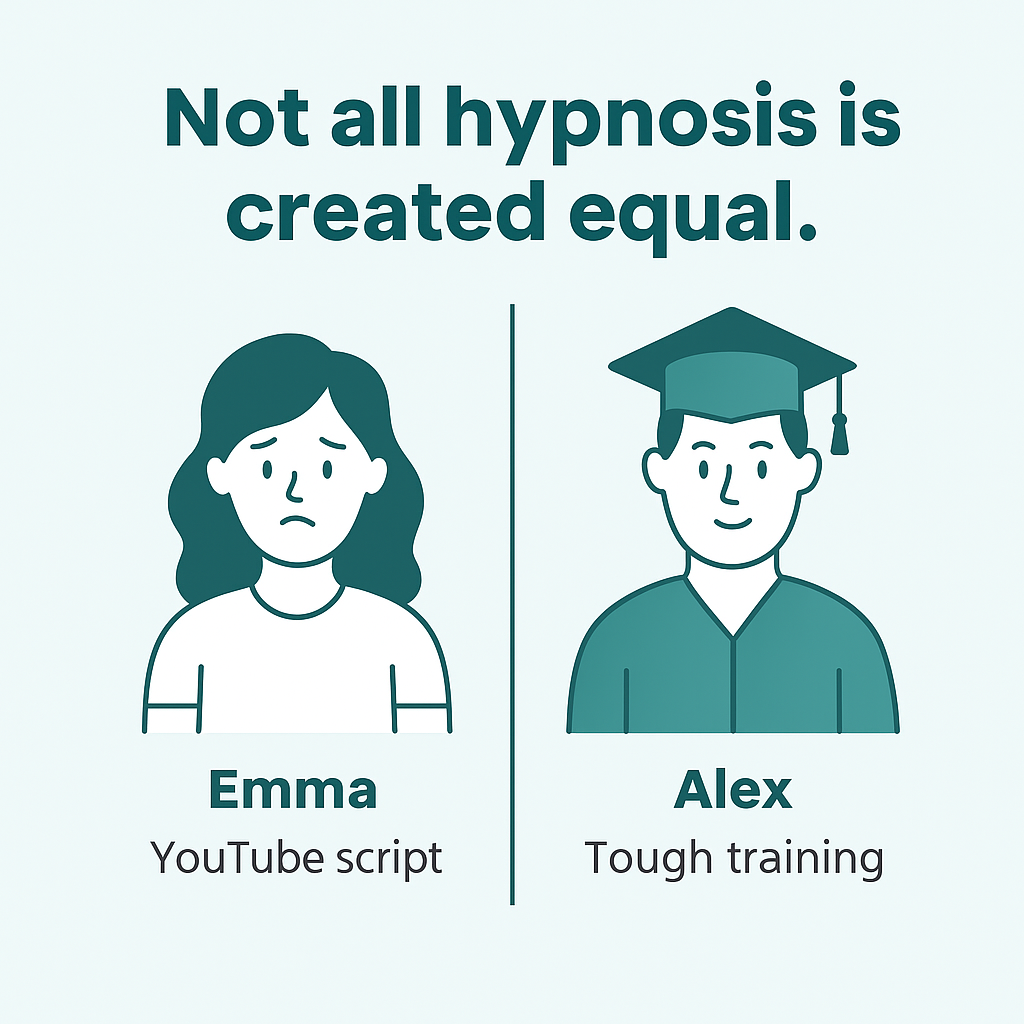
9. What if I’ve tried hypnosis before and it didn’t work?
Not all hypnosis is created equal. Some people get a script off YouTube and call it therapy. We use science-backed, clinical protocols tailored to your condition. If you’ve tried fluff, this is different.
Also all our specialist are trained and registered with the Association of Clinical Hypnotherapist - this is no easy feat, they go through a rigious intensive extensive mind bending (no pun intended) training to use hypnosis! That's why clients trust and (pay us top dollars too..)
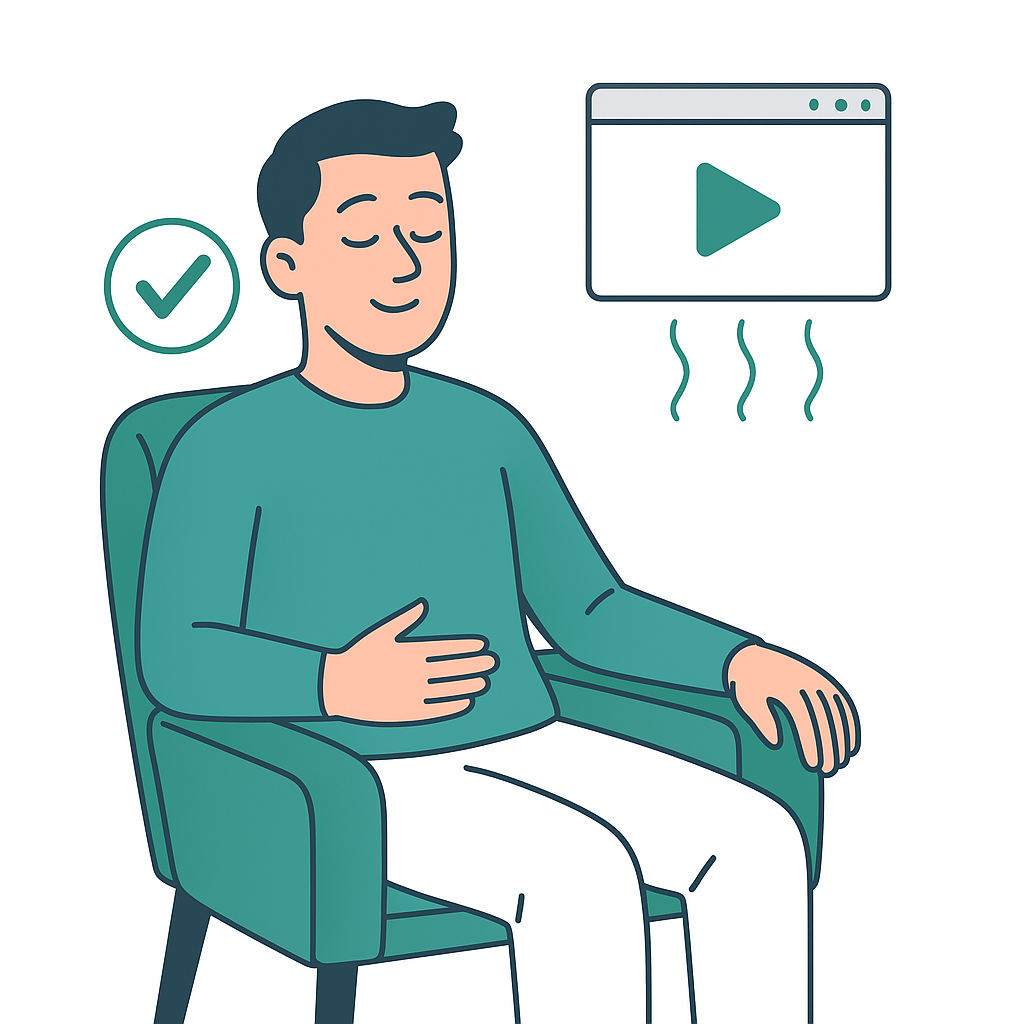
9. What if I get stuck in hypnosis?
You can’t. It’s not a trance you can’t escape—it’s a natural brain state. If your Zoom session dropped mid-way, you’d open your eyes and carry on with your day. It’s more “deep chill” than “locked in.”
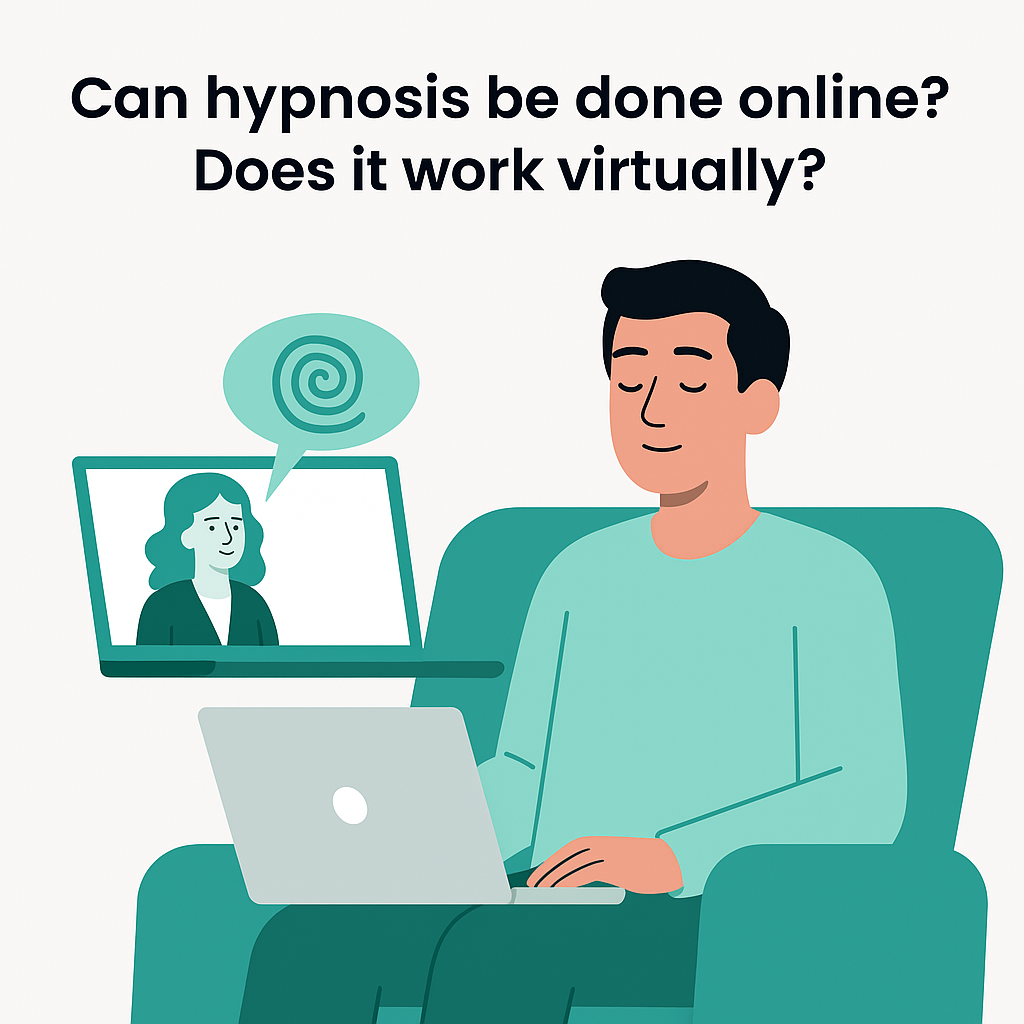
10. Can hypnosis be done online? Does it work virtually?
Yes, research shows virtual hypnosis is just as effective—and often more comfortable—from home
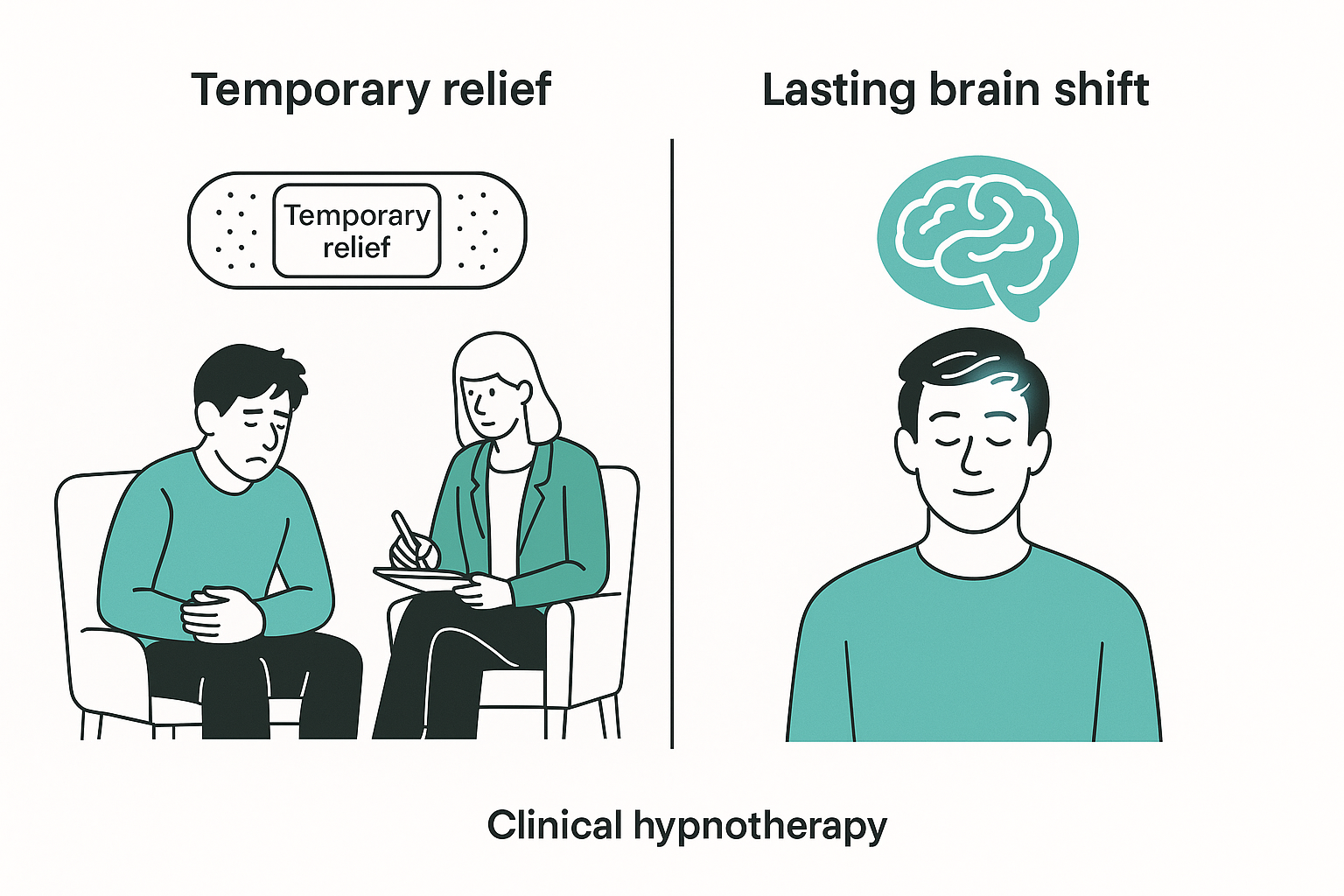
11. Will this “stick” or do I need tune-ups forever?
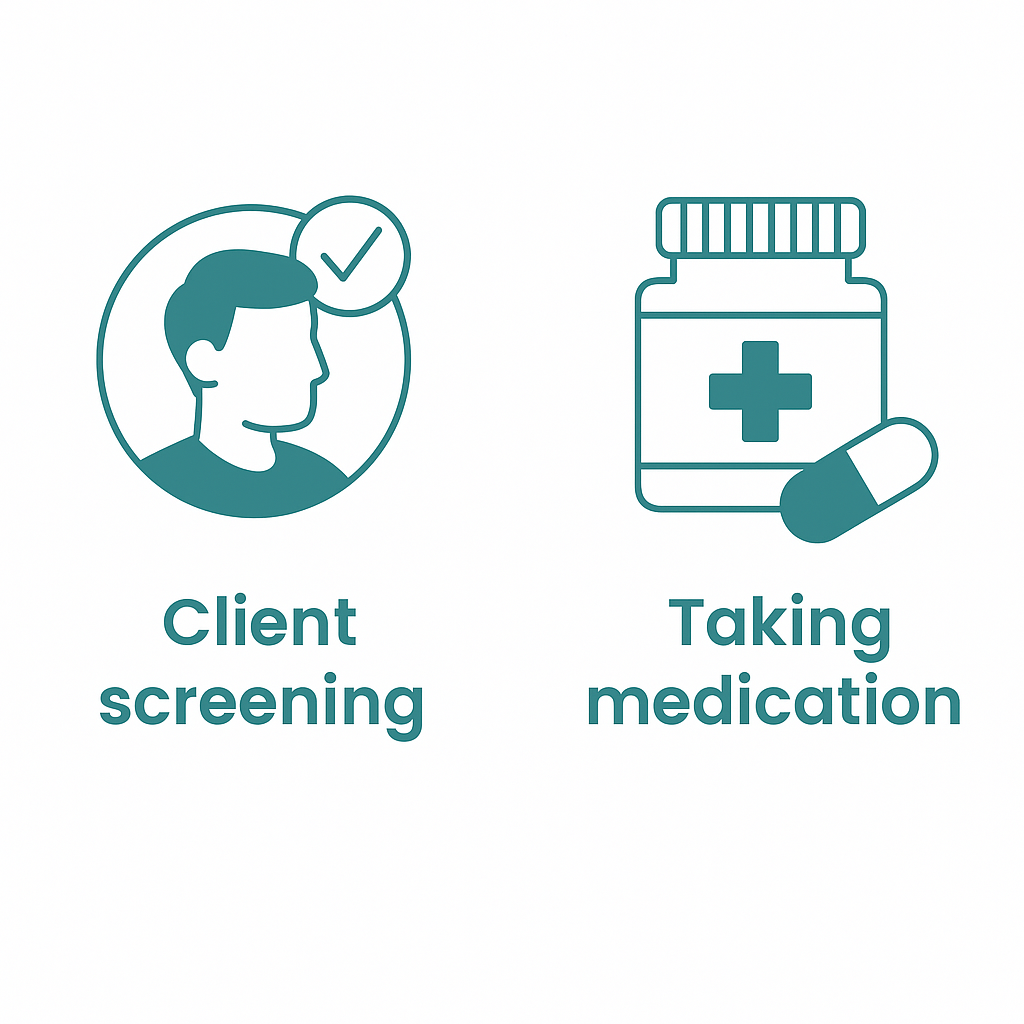
12. Is this safe if I have a mental health diagnosis or take meds?
Yes, for most. We screen all clients and are trained to work around conditions like GAD, ADHD, or mild depression. We don’t interfere with your meds.
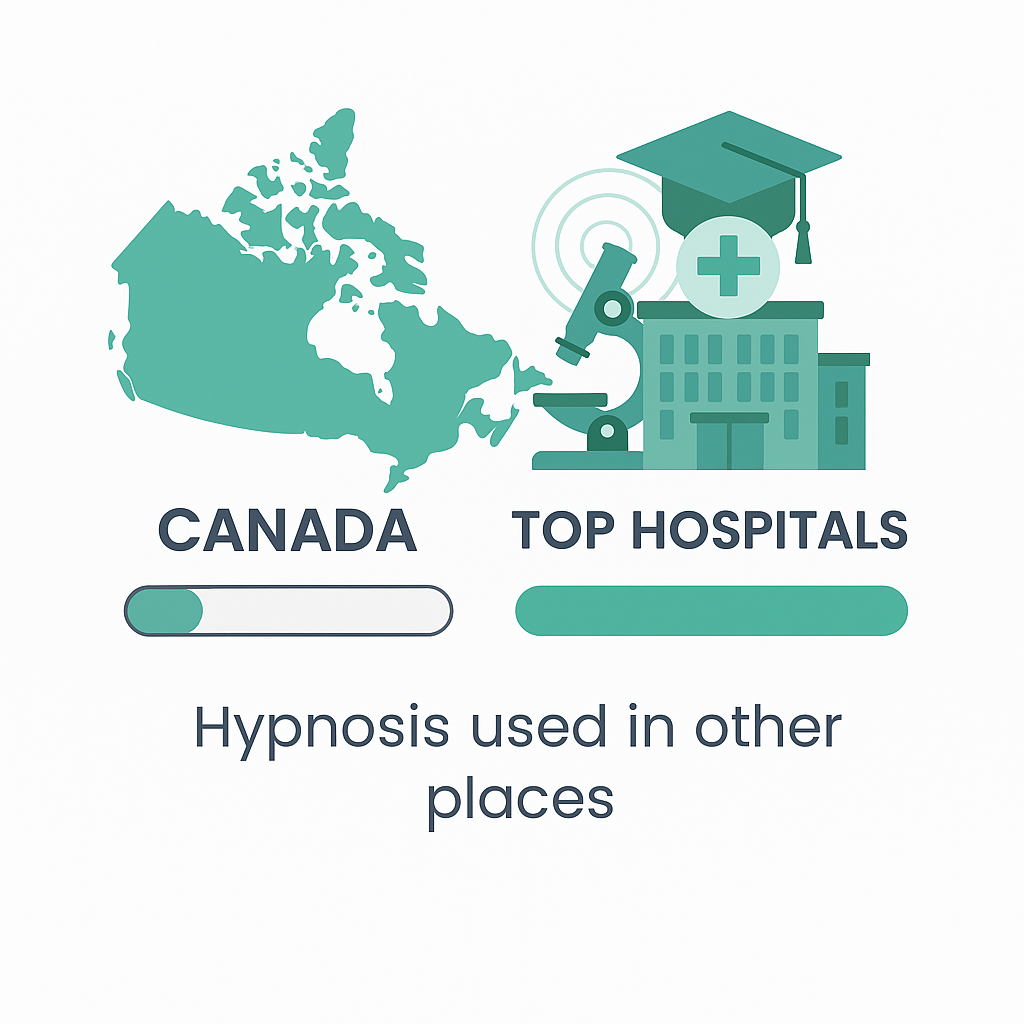
13. If hypnosis is so effective, why don’t more doctors use it?
Because the medical system is slow. Hypnosis doesn’t fit the 7-minute appointment model.
Most doctors aren’t trained in it, even though studies on gut-directed hypnotherapy have been published since the 1980s (Whorwell et al.).
That said, hypnosis is used in top hospitals (Stanford, Mount Sinai, Mayo) — just not widely yet. We’re catching up especially in CANADA!
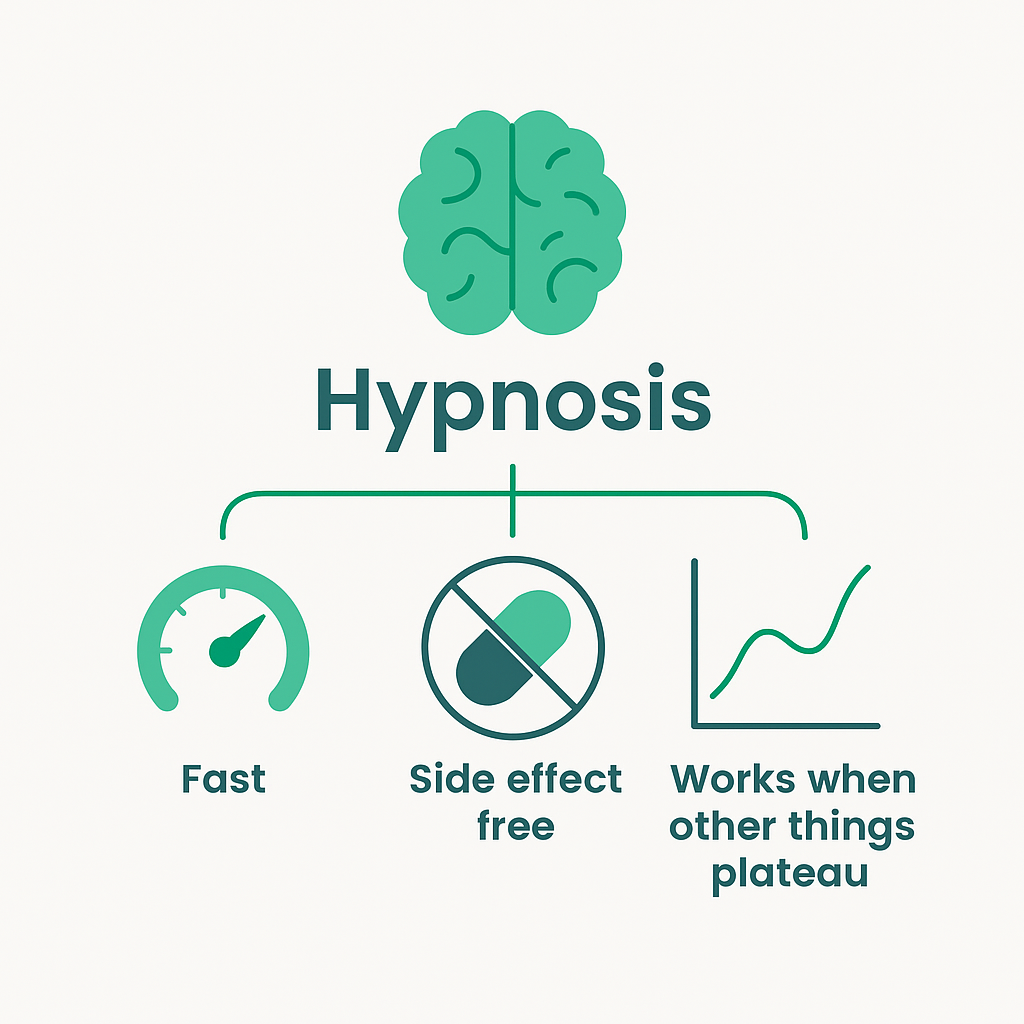
14. Why would I choose this over meds or therapy?
Therapy = insight over time.
Hypnosis = nervous system recalibrated.
Use all three if you want. But hypnosis is fast, side-effect free, and often works when other things plateau. Especially for gut, sleep, and panic.
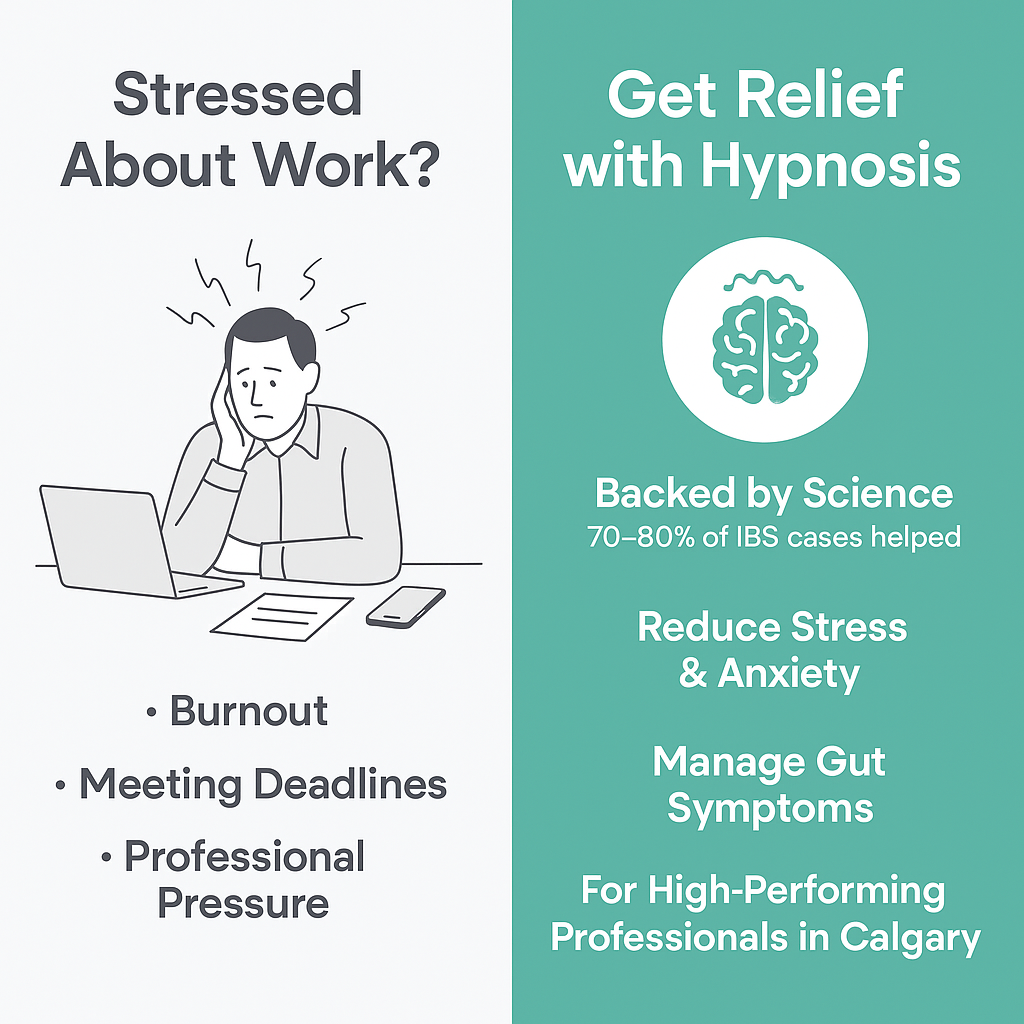
15. Why haven’t I heard of this before?
Pharma doesn’t fund hypnosis ads. Therapists aren’t trained in it.
But ask GI specialists in Europe? It’s standard care for IBS.
We’re just bringing it here — properly.